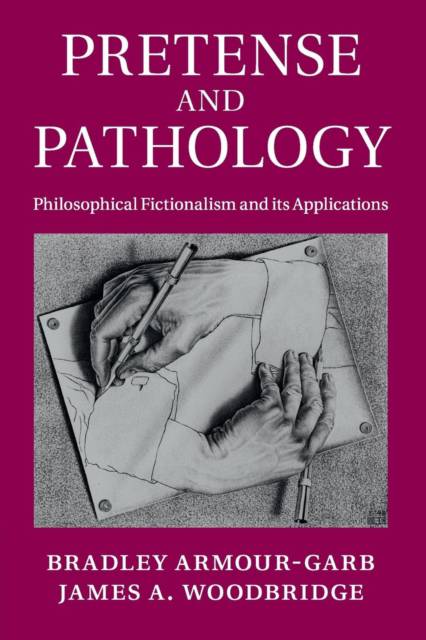
- Afhalen na 1 uur in een winkel met voorraad
- Gratis thuislevering in België vanaf € 30
- Ruim aanbod met 7 miljoen producten
- Afhalen na 1 uur in een winkel met voorraad
- Gratis thuislevering in België vanaf € 30
- Ruim aanbod met 7 miljoen producten
Zoeken
Pretense and Pathology
Philosophical Fictionalism and its Applications
Bradley Armour-Garb, James A Woodbridge
Paperback | Engels
€ 60,95
+ 121 punten
Uitvoering
Omschrijving
In this book, Bradley Armour-Garb and James A. Woodbridge distinguish various species of fictionalism, locating and defending their own version of philosophical fictionalism. Addressing semantic and philosophical puzzles that arise from ordinary language, they consider such issues as the problem of non-being, plural identity claims, mental-attitude ascriptions, meaning attributions, and truth-talk. They consider 'deflationism about truth', explaining why deflationists should be fictionalists, and show how their philosophical fictionalist account of truth-talk underwrites a dissolution of the Liar Paradox and its kin. They further explore the semantic notions of reference and predicate-satisfaction, showing how philosophical fictionalism can also resolve puzzles that these notions appear to present. Their critical examination of fictionalist approaches in philosophy, together with the development and application of their own brand of philosophical fictionalism, will be of great interest to scholars and upper-level students of philosophy of language, metaphysics, philosophical logic, philosophy of mind, epistemology, and linguistics.
Specificaties
Betrokkenen
- Auteur(s):
- Uitgeverij:
Inhoud
- Aantal bladzijden:
- 286
- Taal:
- Engels
Eigenschappen
- Productcode (EAN):
- 9781316648261
- Verschijningsdatum:
- 23/02/2017
- Uitvoering:
- Paperback
- Formaat:
- Trade paperback (VS)
- Afmetingen:
- 152 mm x 229 mm
- Gewicht:
- 385 g

Alleen bij Standaard Boekhandel
+ 121 punten op je klantenkaart van Standaard Boekhandel
Beoordelingen
We publiceren alleen reviews die voldoen aan de voorwaarden voor reviews. Bekijk onze voorwaarden voor reviews.











